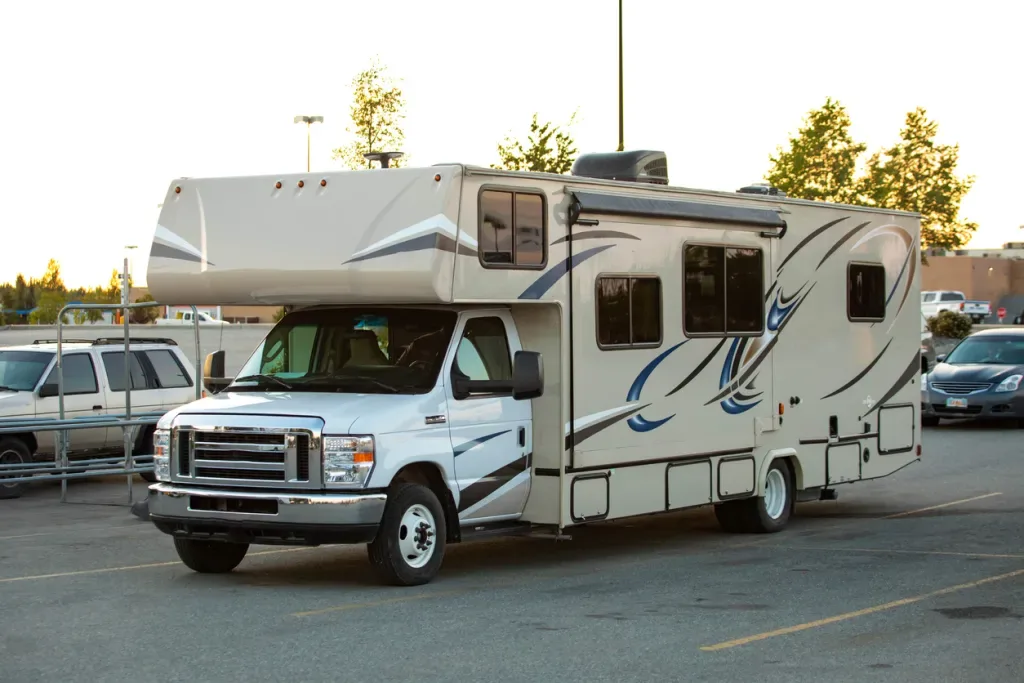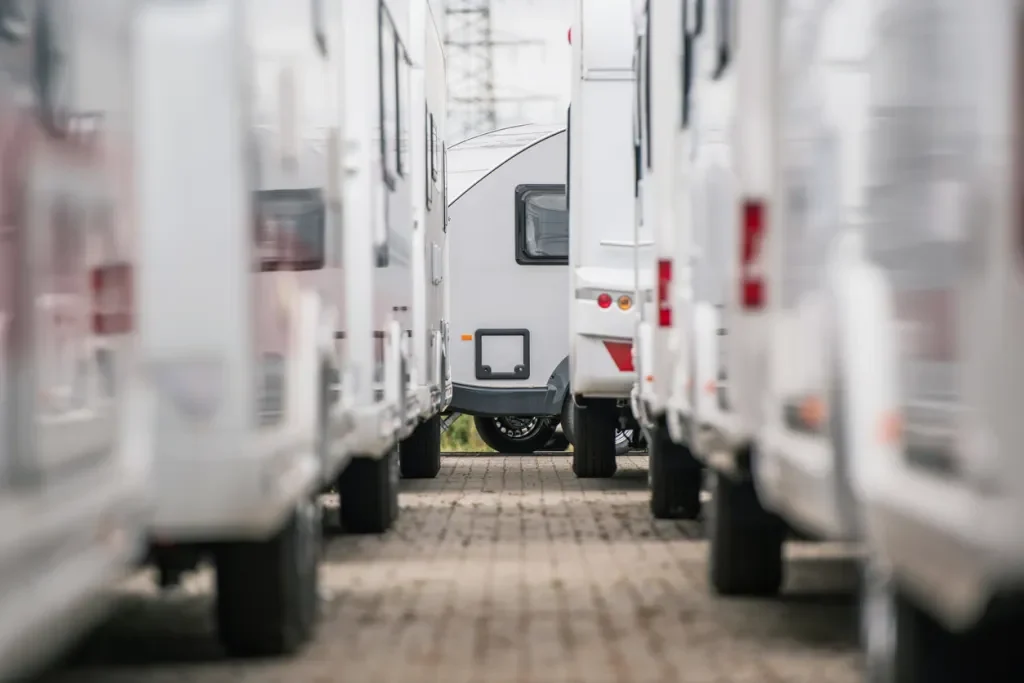One of the biggest issues you’ll run into when purchasing an RV is all the lemons on the lot.
You could still get burned even if you’ve previously bought one from the same manufacturer.
Well, one way to avoid headaches and heartaches is to keep your eyes peeled. With the right information, you can ensure you’re getting a gem.
Let’s pop the hood!
RV Tech Advises How to Avoid Buying an RV Lemon
Undercover RV Tech’s recent YouTube video on lemons delivers one of the industry’s harsh realities. Jacob’s inspected hundreds of campers and knows how to spot a stinker from a mile away.
In his video, he reveals something that makes it hard to get your hands on a high-quality rig. Manufacturers change which parts they use frequently, occasionally even mid-season.
Sometimes, they’re for the better, and others for the worse.
One example he cites is the Alliance Avenue. In the 2020 version, the plumbing was done incorrectly, so they got an F rating. He said to avoid it at all costs. By 2022, they’d corrected the problem, which boosted the grade to a B+. But in 2023, they swapped the slides for a faulty design.
Cue a new failing grade.
You can see why it’s hard to pick a vehicle just on the brand and model alone. Instead of classifying all of the year as a score, you’ll have to inspect each one individually to make a good choice.
Jacob clearly understands how challenging it is, and instead of reviewing thousands of motorhomes, he’s got a different solution. He offers a free RV assessment class that guides you through each area you should look at. From slideouts to countertops, plumbing, and cabinets, you’ll be every shady salesperson’s worst nightmare.
He still recommends paying for a professional inspection, but if you can use his guide to rule out obvious defects, you can save some green. We think it’s important to take this advice and put the power back in your hands when choosing your next rig.
Deep Dive: What’s the Purpose of an RV Inspection?
What Is an RV Lemon?
With all this talk about RV lemons, you might wonder what that means. It’s more than just a broken-down used vehicle. Many times, you’ll see them with warranty-covered flaws.
While there’s plenty of oversight around selling defective cars, the motorhome industry is less regulated nationwide. This makes getting a pass easier for sloppy assembly and crappy plumbing.

Simple mechanical problems are just part of life on the road. But if you’re dealing with roof leaks, power shorts, or fiberglass delamination, you could have a lemon on your hands. Another tell is if it’s gone in for repairs for the same issue four times in a year.
When you’ve lost the use of your vehicle for over 90 days in a row, you’re more than just inconvenienced. You may have a legal case.
Do Lemon Laws Apply to RVs?
Lemon laws don’t always apply to RVs because of several significant factors. Sometimes, they do, but you’ll have to split hairs to figure it out. Working with a lawyer might be the best option if you’re in a gray area.
On the surface, these statutes are in place to protect you if you’ve purchased a faulty product. While most states have them, they’re inconsistent around the country. If you do qualify, you’re entitled to compensation from the manufacturer.

Each unique legal umbrella covers specific items. You may get a settlement for complications with your whole rig in one. However, in another, you could only see refunds for chassis or engine issues. Furthermore, places like North Carolina, for example, won’t help if it’s over 10,000 pounds.
What it boils down to is that you’ll probably be covered, but not for everything. It all depends on where you live.
Speaking of lemons: 10 Astonishing Uses for Lemons in Your Home.
Best Tips to Avoid Buying an RV Lemon
With all this information, you should feel confident that your new RV won’t be a lemon. But it’s more than just knowing what to look out for. You’ll need to do some homework and a bit of due diligence.
Be an Educated Buyer
Knowledge is power, especially when buying a new or used rig. Your research can come in three phases to narrow things down.
First, take some time to get to know what fits you best. Assess your wants, needs, and budget to determine what type of RV to shop for. Once you’ve got that sorted, you can move on.
Then, check reviews of specific brands and models. Focus on highly rated vehicles with few reported issues. If, like Jacob, you see something like consistent plumbing problems, move on. Explore your options and figure out what makes a smart buy. Whether it’s a new or used RV, there’s plenty of information out there.

Finally, see what you can purchase locally. While you won’t always find your dream RV nearby, it’s possible. This makes the whole process simpler and gets you out on adventures sooner.
Perform a Thorough Inspection
Once you’ve found the rig you think you want, perform a thorough inspection. You could use the checklist we discussed earlier or something similar. Spend some time on this part of the process. It’s worth it. Check the exterior for any signs of damage or gapping and the interior for any visible issues.
Then, pay for a professional inspection. You might have a good idea of what to look for, but specialists do this for a living. Sinking a quarter of a million dollars into an RV makes a couple hundred bucks seem like small potatoes. After all, it could save you from investing in a money pit.

Test All Components
Make sure you test each system on the rig, too. You’ll want to examine the electrical, plumbing, heating and cooling, engine, and chassis. Run the slideouts in and out, and get on top to check any skylights or solar panels.
On the inside, check out the beds, lavatories, and any lifts or entertainment features.
You should also take the vehicle out for a test drive. See how well it accelerates and stops, check the suspension and ride, and listen to the engine. If there’s a lot of noise or other obvious issues, move on.
What Should You Do if You End Up With an RV Lemon?
Even the most thorough check may miss something, and you’re stuck with an RV lemon. You can’t, in good conscience, sell it, and it might seem like your options are limited. Well, depending on your state, you’ve got some ethical methods available.
With proper documentation and legal standing, you’re not far from offloading your stinker.
Anytime you go in for repairs, keep all the records in one place. Organize them in order so it’s easy to see a pattern. You can ask your dealer for a repair history if you suspect you’re missing something. Get a copy of your warranty and double-check that everything is on the up and up.
Spend time getting familiar with your state’s lemon laws. Not every issue qualifies your vehicle, and the fine print matters. As long as you’re covered, you can proceed with the following steps.
Decide what a reasonable solution is before you begin the legal process. Replacement, refund, or repurchase are standard options. You’re usually entitled to all your loan payments and any money down. If you had a trade-in or made permanent improvements, they must compensate you.
When you’ve got all your ducks in a row, you can pursue settlement alone or with legal representation. Manufacturers don’t want to give you your money back, even if you have a good case. They’re excellent at stalling and hopefully waiting out your complaints.
A good lawyer can move the process along quickly and help you get your desired result. They’re also well-versed in your state’s laws and might find more cash for you than you thought.
Check out: Buying a Used Motorhome – How to Get the Most for Your Money and Not Get Burned
You Can Avoid Lemons on the RV Lot
No one wants to admit their RV is a lemon. Even seasoned travelers get burned by manufacturer defects hidden by salespeople. And it’s not always their fault either. Selling hundreds of rigs a year, they probably won’t inspect them all. But with some information to back you up and resources like the Undercover RV Tech’s guide, you can avoid it.
On the road, you want to enjoy every minute of your time without worrying about making lemonade!
We’ll Help You Find the Best Free Camping in the USA
You should give it a try!
As a matter of fact, these free campsites are yours to enjoy. Every time you pay federal taxes, you’re contributing to these lands.
Become a FREE CAMPING INSIDER and join the 100,000 campers who love to score the best site!
We’ll send you the 50 Best Free Campsites in the USA (one per state). Access the list by submitting your email below: